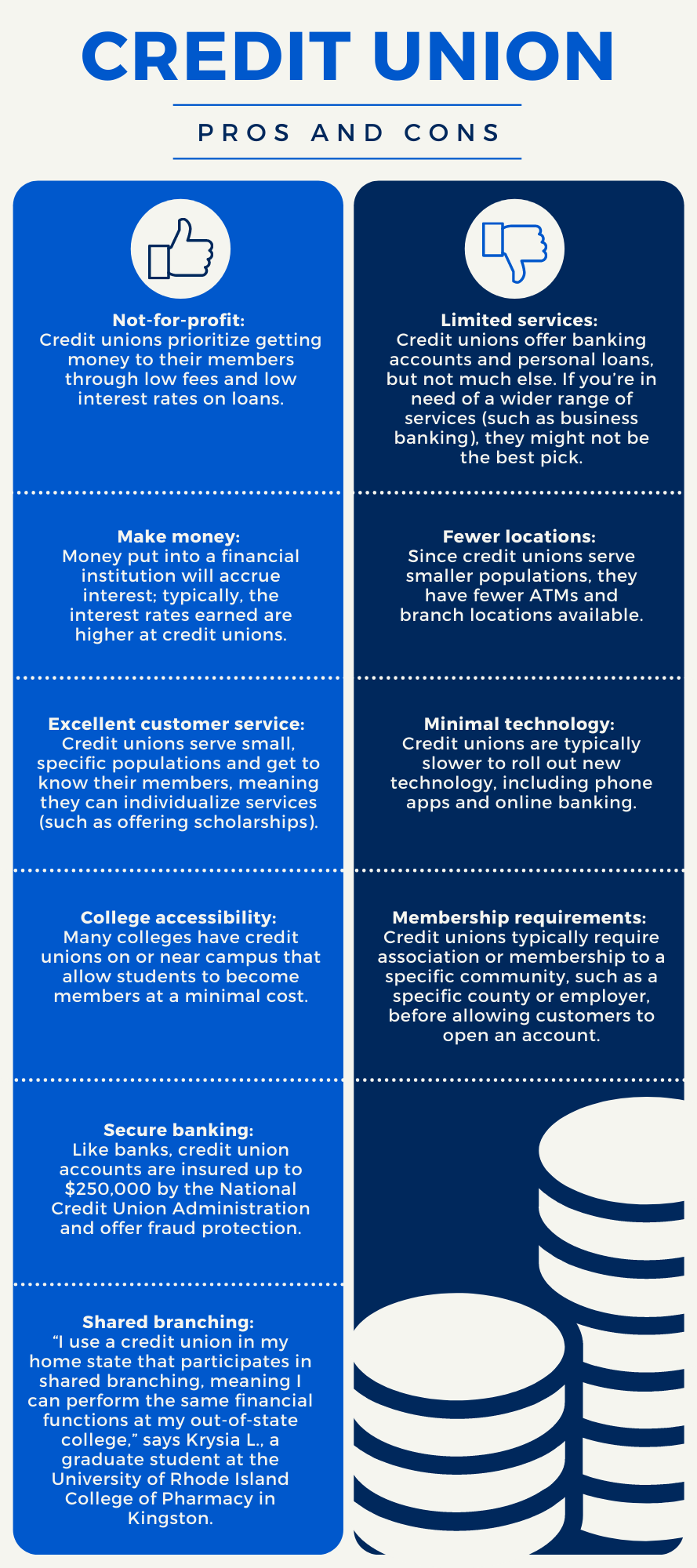Credit Union in Wyoming: Discover the Advantages of Member-Focused Financial
Credit Union in Wyoming: Discover the Advantages of Member-Focused Financial
Blog Article
The Ultimate Guide to Recognizing Cooperative Credit Union

Cooperative credit union stand as one-of-a-kind monetary entities, rooted in principles of common support and member-driven procedures. Nonetheless, beyond their foundational worths, understanding the detailed workings of credit unions involves a deeper expedition. Unwinding the complexities of membership qualification, the advancement of services supplied, and the distinct advantages they bring calls for a comprehensive assessment. As we browse through the details of debt unions, an insightful trip awaits to clarify these member-focused institutions and just how they vary from traditional financial institutions.
What Are Cooperative Credit Union?
Cooperative credit union are member-owned economic institutions that provide a series of financial services to their participants. Unlike traditional banks, debt unions operate as not-for-profit organizations, meaning their primary emphasis gets on offering their members instead than making the most of earnings. Members of a credit history union normally share an usual bond, such as helping the exact same employer, coming from the very same area, or belonging to the very same company.
One of the vital benefits of cooperative credit union is that they commonly use higher rate of interest prices on financial savings accounts and lower interest prices on loans contrasted to financial institutions. Credit Union in Wyoming. This is because cooperative credit union are structured to benefit their members directly, allowing them to pass on their profits in the type of far better prices and less costs. In addition, credit scores unions are understood for their customized client service, as they prioritize building connections with their participants to comprehend their special economic requirements and objectives
History and Development of Cooperative Credit Union
The origins of member-owned economic cooperatives, understood today as cooperative credit union, trace back to a time when areas looked for options to conventional banking establishments. The principle of debt unions stem in the 19th century in Europe, with Friedrich Wilhelm Raiffeisen usually attributed as the pioneer of the participating financial motion. Raiffeisen established the very first acknowledged debt union in Germany in the mid-1800s, emphasizing community assistance and self-help concepts.
The development of lending institution continued in North America, where Alphonse Desjardins established the initial cooperative credit union in copyright in 1900. Quickly after, in 1909, the initial U.S. lending institution was created in New Hampshire by a team of Franco-American immigrants. These early credit scores unions operated on the fundamental principles of mutual aid, democratic control, and participant ownership.
In time, cooperative credit union have expanded in popularity worldwide due to their not-for-profit framework, concentrate on serving members, and supplying affordable monetary products and solutions. Today, credit unions play an important duty in the financial industry, offering easily accessible and community-oriented banking choices for people and businesses alike.
Subscription and Eligibility Requirements
Membership at a debt union is commonly restricted to individuals fulfilling specific eligibility standards based on the organization's beginning principles and regulative needs. These criteria commonly include elements such as geographical area, employment condition, subscription in certain organizations, or association with certain groups. Lending institution are known for their community-oriented strategy, which is reflected in their subscription needs. Credit Union in Wyoming. For example, some lending institution might only offer people who work or live in a specific location, while others might be tailored to employees of a particular business or members of a certain organization.
In addition, cooperative credit union are structured as not-for-profit organizations, suggesting that their primary objective is to offer their members instead of create revenues for shareholders. This focus on participant solution commonly translates into even more individualized interest, lower costs, and affordable rates of interest on fundings and cost savings accounts. By fulfilling the eligibility requirements and becoming a participant of a lending institution, individuals can access an array of monetary services and products customized to their specific needs.
Solutions and Products Offered
Among the vital aspects that establishes link lending institution apart is the varied series of financial product and services they supply to their participants. Cooperative credit union generally supply typical banking services such as a knockout post financial savings and examining accounts, finances, and charge card. Members can likewise take advantage of financial investment services, consisting of pension and monetary planning help. Lots of cooperative credit union use affordable rates of interest on savings accounts and lendings, in addition to lower fees compared to conventional financial institutions.
Additionally, lending institution often provide convenient online and mobile banking alternatives for participants to easily handle their financial resources. They might supply rewards such as common branching, permitting participants to access their accounts at various other cooperative credit union throughout the nation. Some lending institution also provide insurance coverage products like life, vehicle, and home insurance policy to assist participants safeguard their properties and loved ones.

Benefits of Banking With Cooperative Credit Union
When considering banks, exploring the benefits of banking with credit rating unions reveals special advantages for members looking for individualized service and affordable rates. One substantial advantage of cooperative credit union is their concentrate on individualized customer support. Unlike large financial visit this website institutions, cooperative credit union are member-owned and prioritize building solid connections with their participants. This implies that cooperative credit union personnel typically have a deeper understanding of their members' monetary needs and can offer customized options to help them achieve their goals. In addition, cooperative credit union are recognized for providing competitive rate of interest on financial savings and loans accounts. Because they are not-for-profit companies, cooperative credit union can often offer reduced car loan prices, higher financial savings prices, and reduced costs contrasted to typical financial institutions. This can lead to considerable expense financial savings for participants in time. In general, banking with a credit union can supply an extra customized, cost-efficient, and member-centric monetary experience.
Verdict
Finally, debt unions attract attention as member-owned economic establishments that focus on offering their members over optimizing earnings. With origins going back to 19th century Europe, credit scores unions comply with concepts of mutual help and participant possession. They offer a variety of economic product and services, including standard banking services, investment choices, and affordable rate of interest prices. Membership eligibility criteria are details and show a community-oriented technique, offering individualized customer support and a member-centric monetary experience.
Debt unions are member-owned monetary institutions that offer a variety of financial solutions to their members. The idea of credit unions stem in the 19th century in Europe, with Friedrich Wilhelm Raiffeisen typically attributed as the leader of the participating banking movement.The advancement of credit unions proceeded in North America, where Alphonse Desjardins established the initial credit scores union in copyright in 1900. Credit history unions normally offer standard financial solutions such as cost savings and inspecting accounts, car loans, and credit report cards.When taking into consideration financial institutions, checking out the advantages of banking with credit rating unions exposes distinct benefits for members looking for customized solution and affordable rates.
Report this page